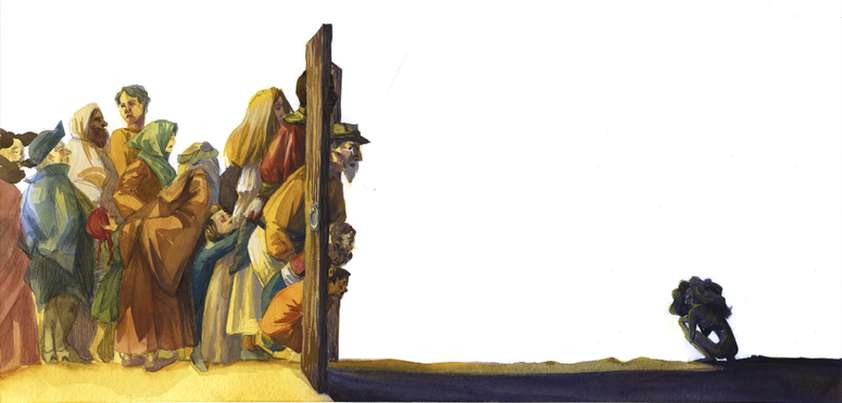 This philosophical narrative by Ursula Le Guin describes life in the seemingly utopian city of Omelas. We learn that almost everyone in the city lives in complete happiness. There is no organized system of rule, few laws, sexual freedom, no crime, no violence, and nobody living in want. Sadly, there is a blight on this “paradise”. For happiness to prevail, a single child must live in absolute misery, locked up alone in an underground cell. Themes: morality and moral compromise (the price of happiness), victimization, complicity (collective knowledge = shared responsibility), guilt, courage (the ones who “walk away”).
This philosophical narrative by Ursula Le Guin describes life in the seemingly utopian city of Omelas. We learn that almost everyone in the city lives in complete happiness. There is no organized system of rule, few laws, sexual freedom, no crime, no violence, and nobody living in want. Sadly, there is a blight on this “paradise”. For happiness to prevail, a single child must live in absolute misery, locked up alone in an underground cell. Themes: morality and moral compromise (the price of happiness), victimization, complicity (collective knowledge = shared responsibility), guilt, courage (the ones who “walk away”).
In revealing the city’s dark secret, Le Guin asks readers to consider two questions: 1) What is an acceptable negative impact on the lives of others, including future generations, for the majority to be able to live comfortably; and 2) What should those who disagree with the outcome do… remain silent, “walk away”, or try to change things. These questions apply to many aspects of society – the environment (pollution, global warming), human rights (poverty, discrimination, human trafficking/slavery, worker exploitation) and conflict (collateral damage in war). The story suggests that the best answers will come by imagining that we are the child in the basement.
Original Text / PDF / Audio (2,800 words)